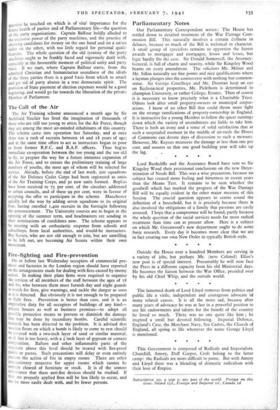Fire-fighting and Fire-prevention
On or before last Wednesday occupiers of commercial pre- mises and factories in the London region should have reported on the arrangements made for dealing with fires caused by enemy action. In making their plans firms were required to organise the services of all members of the staff between the ages of 18 and 6o, who between them must furnish day and night guards to watch for fires, give warnings, and tackle the danger as soon as it is detected. But obviously it is not enough to be prepared to fight fires. Prevention is better than cure, and it is an imperative duty for all occupiers of buildings of any kind— private houses as well as business premises—to adopt all possible protective means to prevent or diminish the damage that may be done by incendiary bombs. Careful scientific research has been directed to the problem. It is advised that Wooden floors on which a bomb is likely to come to rest should be covered with a two-inch layer of sand or similar material, or, if that is too heavy, with a i inch layer of gypsum or cement composition. Rafters and other inflammable parts of the structure above this level should be treated with fire-proof paints or pastes. Such precautions will delay or even entirely Prevent the action of fire in empty rooms There are other precautionary measures for upper rooms which cannot be entirely cleared of furniture or stock. It is of the utmost Importance that these anti-fire devices should be studied. If they are properly applied fires will be less likely to occur, and can be more easily dealt with, and by fewer persons.






























 Previous page
Previous page